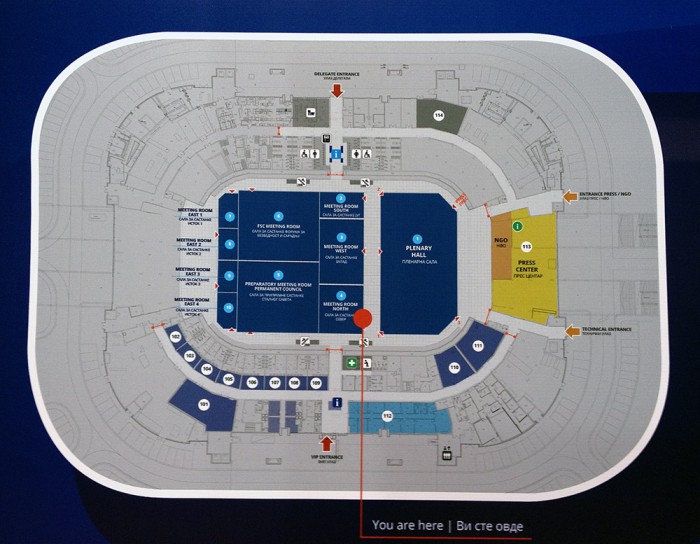
Years ago, studying in London, I was puzzled by the enthusiasm of international relations students for spending days at a time for running from room to room playing ‘Diplomacy’.
Throughout my subsequent years as a diplomat the board game has seemed far removed from what I do – until now. Last week I attended my first OSCE Ministerial Council in Belgrade, capital of our Serbian 2015 ‘Chair in Office’. The venue was a large sports arena with galleried seating overlooking the negotiating action, and hospitality boxes used as national delegation offices, all linked by tiers of circular corridors and vast flights of concrete steps. Navigation – and at times negotiation – was confusing and prone to going round in circles.
The ministerial day was a whirl of ‘speed dating’ bilateral meetings around the stadium, punctuated by plenary statements in an order determined by lottery and horse trading. Secretary Kerry, Foreign Minister Lavrov and EU High Representative Mogherini had early speaking slots. Because UK Minister for Europe, David Lidington, was delayed by an important parliamentary vote we swapped with Ukraine.
Of course the board game’s inventor did not foresee the opportunities (or complications) of mobile telephony and digital communication. But the real difference was that diplomats in Belgrade were not playing great power politics with fleets and armies to gain physical control of territory. We were simply trying to commit to paper what we agreed about and, by omission, pin point where we disagreed. But real world disputes and conflicts had an ever present bearing on discussion and outcomes. So it was unsurprising, if disappointing, that few texts were agreed even in areas of common interest, often ostensibly because a handful of disputed words.
Those disappointments reflect tensions at the heart of the OSCE: between countries committed to fundamental freedoms and OSCE principles/commitments and those that prefer to bolster the interests of a ruling order; those that genuinely want to reduce risk through military transparency and trust, and those who prefer to take advantage of existing loopholes; those that believe in the sovereign and territorial rights of every state and those who believe some are more equal than others, to quote George Orwell.
This has been another challenging year for multilateral diplomacy at the OSCE. Until Russia and its proxy ‘separatists’ fulfil the Minsk requirements to get ‘foreign fighters’ off Ukrainian soil and restore Ukraine’s control of its own borders – not to mention facilitate full access for the OSCE’s Special Monitoring Mission and for humanitarian agencies – there will be more difficult months ahead.
We don’t sit at the lengthy OSCE table plotting to seize territory, but sadly one major player has torn up the rules of the game to do just that. Like board games, real world international relations work best when everyone plays by the same rules.
